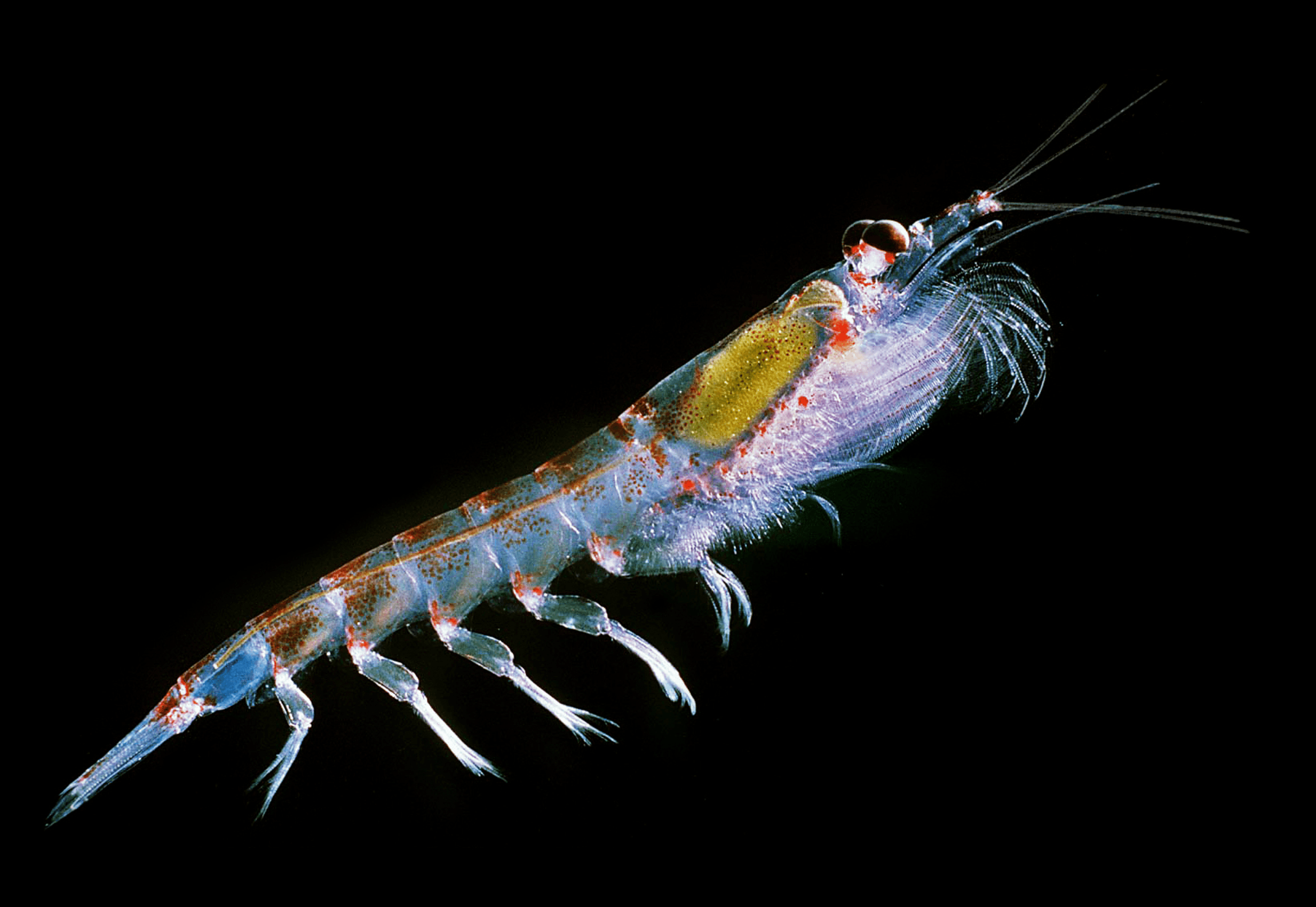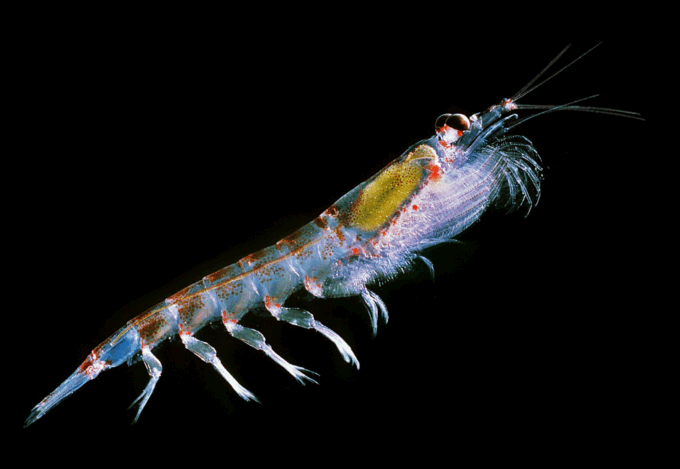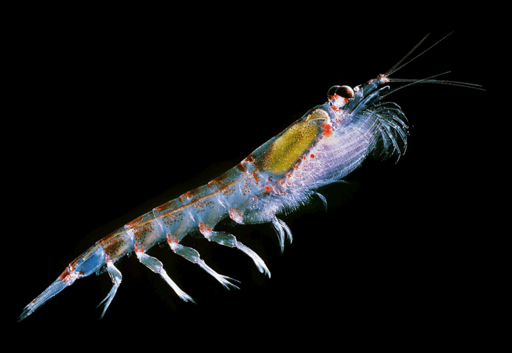

Antarctic krill, Wikipedia.
Leonid Pshenichov, a 70-year-old biologist, has been arrested by the Kremlin for “undermining Russia’s industrial trawling for krill in Antarctica.” He’s been accused of High Treason. He was arrested while preparing to travel to Australia to attend a conference for protecting Antarctic marine life.
According to Russian authorities, Leonid is a citizen of the Russian Federation who defected by joining Ukraine’s delegation to an Antarctic conference, known as the Commission for the Conservation of Antarctic Marine Living Resources. The accusation claims Leonid is using his position to undermine Russia’s fishing of krill in Antarctica by supporting a Ukrainian proposal to “restrict krill harvesting.”
The Commission for the Conservation of Antarctic Marine Living Resources, consisting of 27 member states since 1982, proposes creation of a protected area around the Antarctic Peninsula specifically to protect krill, the prime ingredient in the marine food chain in the Southern Ocean. “This year, for the first time, the number of krill fished in Antarctic waters reached what scientists believe is an unsustainable level.” (Russia Arrests Ukrainian Biologist for Backing Curbs on Antarctic Krill Fishing, The Guardian, Oct. 26, 2025)
Russia and China have blocked proposals for Marine Protected Areas (MPA) in the region for decades. Members of the Commission have called for member states Australia, the US (really?) Japan, and others to condemn Moscow’s actions. Of note: Leonid has conducted research for the Commission since 1983 and as a Ukrainian scientist since 1994. He and family reside in Kerch, Crimea. According to several scientists familiar with his work: His contribution t0 the Commission is “difficult to overestimate.”
Dan Crockett, executive director of the conservation charity Blue Marine Foundation, claims Pschenichnov has been imprisoned for “nothing more than providing scientific evidence about the impact of krill fishing on the Antarctic ecosystem,” Ibid.
Krill Superheroes: According to the National Science Foundation, Antarctic krill are the “Superheroes of the Southern Ocean.” The National Oceanic and Atmospheric Administration (NOAA, which is on Trump’s chopping block) refers to krill as: “Tiny Krill: Giants in the Ocean Marine Life Food Chain.”
Nature Communications describes krill as marine animals that create “the largest monospecific aggregations (swarms) in the animal kingdom,” which means they are easy prey for hungry whales as well as gigantic fishing trawlers.
Moreover, climate change has a position in the life cycle of krill: The Importance of Antarctic Krill in Biogeochemical Cycles, Nature Communications, October 2019, explains the significance of krill as a significant carbon sink: “The role of phytoplankton in atmospheric CO2 drawdown and fish production has been the central focus of many biogeochemical studies,” Ibid.
Industrial Scale Krill Fishing
“The huge trawlers move forward, slowly. Just a short distance from one another, each brand their nets – hundreds of metres in length – before submerging them in the icy waters of the Southern Ocean.” (Licensed to Krill: The Industry Pressures on the Southern Ocean, Oceanographic, September 4, 2025).
As of 2025, Alistar Allan remembers: “Recounting his experience of the fishing effort documented back in 2022 and 2023, Alistair Allan, Antarctic Director at the Bob Brown Foundation admits that he was “blown away” by what he saw, “amazed by the concentration of fishing effort in this small patch of ocean,” Ibid.
Krill fishing by gargantuan trawlers has steadily grown from 106,00o tons in 2006 to 518,000 tons in 2025. Krill is used in salmonid fish farming and as pet food and by humans for its remarkable omega3 content.
At this year’s United Nations Oceans Conference in Nice, France personalities such as renowned oceanographer Sylvia Earle and actor Benedict Cumberbatch called for a complete ban on krill fishing, claiming the industry is a “non-essential activity.” And making matters even worse, industrial fishing not only negatively impacts one of the most fragile ecosystems of the planet but also directly worsens the climate crisis by eliminating a significant carbon sink.
“If you look at where krill goes, it’s into things that we really do not need,” says Alistair Allan. “It’s not providing an essential foundation for global food security; it’s not feeding the world. It’s been put into pet food, it’s put into salmon aquaculture to feed farmed fish, and it goes into supposed health supplements,” Ibid.
As it happens, human-oriented bizarre nature scenarios keep showing up in the oddest circumstances, for example, the Southern Ocean experiences a surrealistic battle scene of sea mammals, like whales, and human craving for health perfection and abrupt climate change and gigantic metallic trawlers at sea all simultaneously attacking tiny, very small, shrimp-like crustaceans typically 1-2 cm long found at the base, literally the foundation, of the marine food chain. Under normal circumstances the often-transparent creatures use quick backward swimming to escape predators. But trawler nets with total stretch length of 133 m (440 feet) and a mouth perimeter of 300 m (990 feet) wide are a bit too much for quickie escape techniques that have been perfected for centuries. The modern world may be too much for krill that miraculously withstood the aging of time with two lineages of krill surviving the mass extinction event 65 million years ago. Well now, give humans only maybe 200 hundred years to nearly wipeout 65 million years of rugged evolution. Something doesn’t seem right.
The average krill fishing trawler catches roughly 100 tons of krill per day, which is equivalent to 100,000,000 krill per day per ship, so it takes an average trawler about 10 days to catch one billion (1,000,000,000). Krill fishing trawlers can stay at sea for several weeks to months at a time, and sometimes for an entire season (up to 8 months), by using transshipment to offload their catch onto refrigerated cargo vessels (reefers) at sea.
This article is proof positive that civilization is in deep, deep trouble, as it scavenges for the last remaining, most fundamental to life, creatures on the planet. Nothing else compares to such a perfect metaphor for a dying civilization as “harvesting krill.” Welcome to the world of insanity and some strange level of stupidity.
As a footnote to this story and as an alternative to industrial fishing of krill: Ashlan Cousteau, award-winning environmental journalist, producer, and co-founder of EarthEcho International is tackling the krill crisis with a simple but transformative solution. Through her new company, SeaVoir, she’s launched an algae-based omega-3 that delivers the same nutrition as fish and krill oil at the same cost — without harming marine ecosystems.
The post Krill Defender Arrested by Moscow appeared first on CounterPunch.org.
From CounterPunch.org via this RSS feed
With tiny little handcuffs, I bet.



